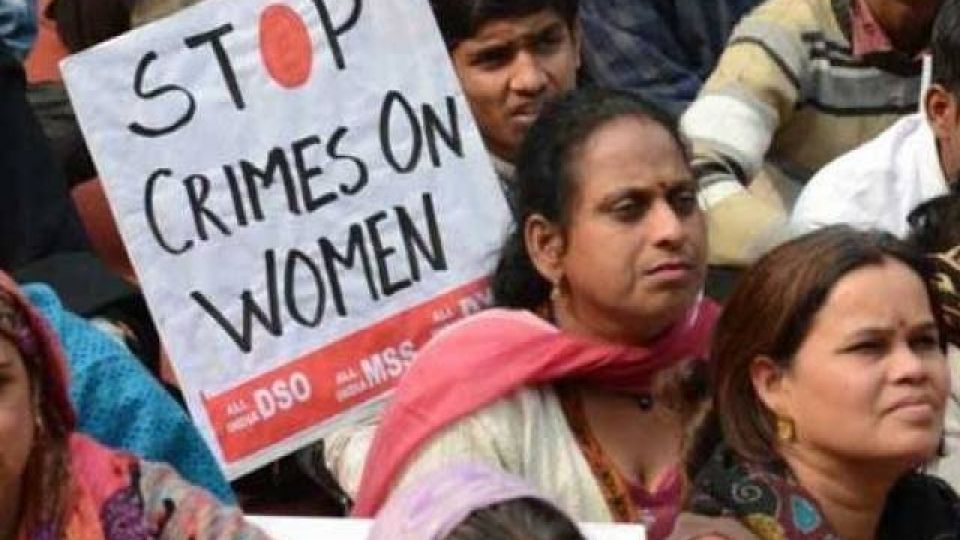December 5, 2019
Rafia Zakaria writes for Dawn.
THAT crime lurks in the streets and corners of Karachi is not news for anyone. Precariousness and predation are the mainstay in this southern corner of the land of the pure; if you have something you are hunted and if you have nothing, you hunt. Destiny damns both, the hunters and the hunted, enacting a dystopian version of The Walking Dead, every day and every night. Karachi is, after all, judged as one of the world’s cities that are least liveable. The scars of it all are visible everywhere, on the bodies and faces of its people, on the hospitals that do not care, and the police that do not protect.
This time, the dark forces that breed within the city came for a young girl. According to news reports, 20-year-old Dua Nisar Mangi was ‘committing the crime’ of walking down a city street. This was over the weekend past, and with her was a friend named Haris. It was not supposed to be the time that catastrophes can strike but then one remembers that serious misfortune can strike at any time, particularly in a city like Karachi. Catastrophe did strike on this night. In one short and shocking instance, a car pulled up next to the two friends. Men jumped out, some carrying a gun, all guns pointed at the two.
Read: Girl’s shocking kidnapping in DHA remains unresolved
It was Dua that they were after. At gunpoint, they ordered her to get into their car. When Haris tried to intervene, they shot him in the neck. With no one and nothing to stop them, they got into the car and sped away into the Karachi night. The attack likely lasted no more than minutes. When it was over, a bleeding and disoriented Haris lay on the street. Dua Mangi was nowhere to be seen.
What happened in the immediate aftermath indicates just how helpless Karachiites are when an attack such as this takes place. People gathered, the injured Haris managed to call his family to tell them that he had been shot. Someone took him to the National Medical Centre on Korangi Road but he had to be shifted Aga Khan Hospital on Stadium Road. He was, according to the latest news, still in critical condition. He had been shot in the neck but the bullet travelled into his chest.
A police report of the incident has been lodged at the Darakshan Police Station. While the police say that they are investigating the case, and there have been a couple of arrests, there seem to be few solid leads. After looking at CCTV footage from the area, they have stated that the car that was used in the attack appears to be one that was stolen in a carjacking a few days ago.
Where the police fall short, social media tries to amend. In the tense hours after the young woman’s disappearance, people took to social media to try and get the public mobilised to find her. The first 48 hours are supposed to be the most crucial ones where retrieving victims of kidnapping are concerned and her family members would have hoped that publicising the case and her picture would hopefully result in some leads regarding where she had been taken. One hopes that the efforts are successful and in the time between now and when this article goes to print, Dua is found safe and sound.
Not all who hear about women’s victimisation have good things to say, though. As is the routine with a society raised on misogyny and where the singular constant is that it is always the woman’s fault, the self-appointed judges on Twitter and Facebook begin to pass judgement. A woman strolling on a street, after all, is frowned upon in Pakistan: how dare she imagine even for a second and even whilst accompanied by a male, that she had a right to occupy public space. The tone and tenor of all of these exchanges confirm what women in Pakistan’s biggest city already know: that if they occupy any public space, they must be ever apologetic about it. The proof of this is everywhere; half the country is made up of women and yet the rules and rituals of public space are made up entirely by men.
One hopes and prays for women, that they not suffer, and in this young woman’s case, be found before this piece is published. One must also hope that such cases are resolved, women in such dire predicaments be spared the living post-mortem of intrusive questions, of cruel labels and injurious allegations. Pakistan does not know how to spare its women, even if they are somehow miraculously spared by fate itself.
The current instance should also be a moment in which those Pakistani women who consider politics and feminism distant questions begin to pay attention. Even with an accompanying male, at a decent time, in a commercial area, their safety is but an illusion. In a country where too many still believe that a woman must never leave home, it is only collective organisation and a demand that their safety be a priority that can save them. Until then, there is nothing at all to ensure that another woman will be in the wrong place at the wrong time, that a romance gone sour or a marriage turned bad will be a death sentence for them.
In the meantime, all that this country and this city and all the people in it can offer up to a kidnapped young woman are thoughts and prayers. Hopefully they can do this small bit, with clear hearts and true hopefulness. The police might be doing the best they can, but there are always hopes and prayers — as far as they will go.
The writer is an attorney teaching constitutional law and political philosophy.


